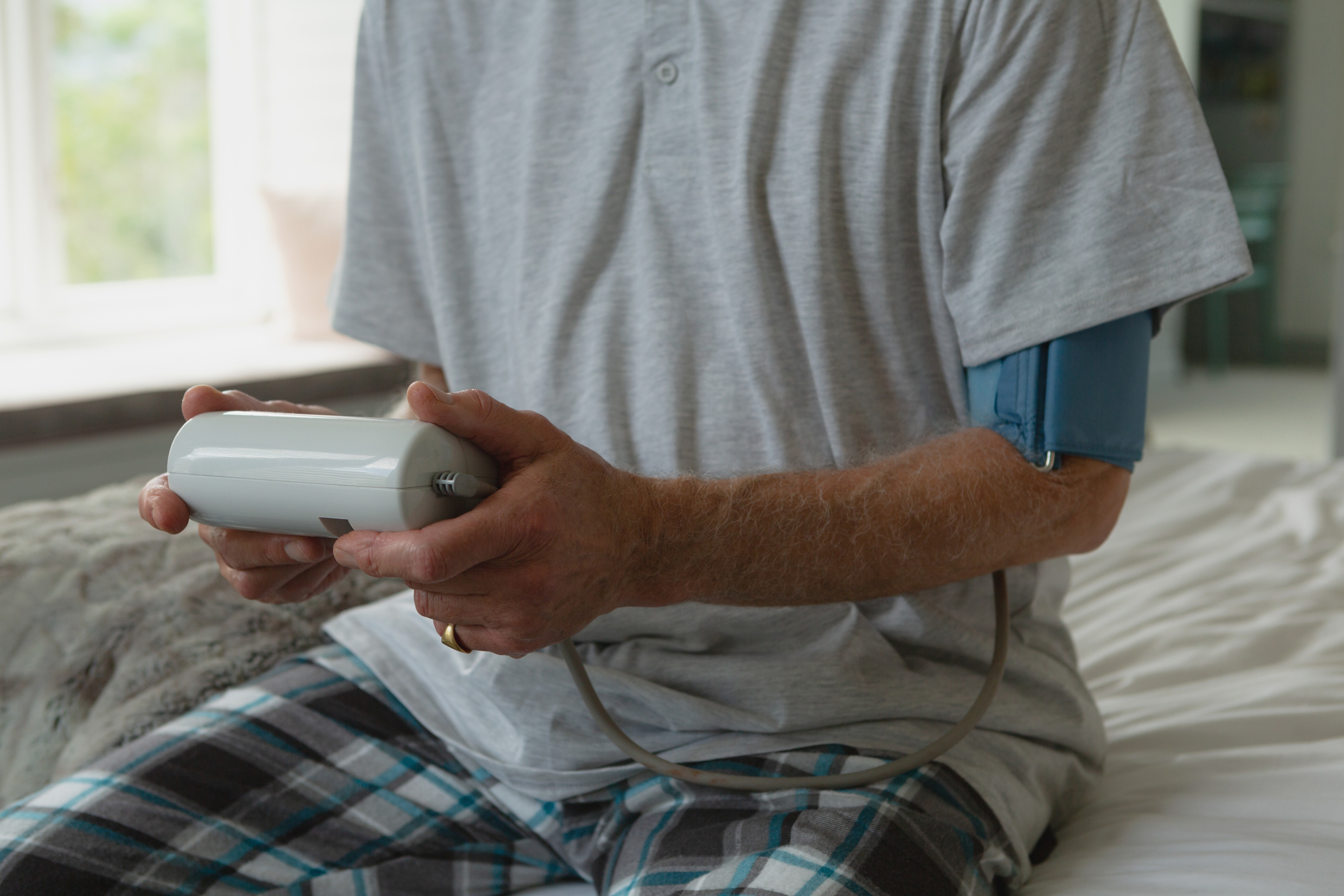Get Easy Health Digest™ in your inbox and don’t miss a thing when you subscribe today. Plus, get the free bonus report, Mother Nature’s Tips, Tricks and Remedies for Cholesterol, Blood Pressure & Blood Sugar as my way of saying welcome to the community!
Nighttime blood pressure: What every diabetic should know

It’s no secret that blood sugar problems can lead to disease in the rest of your body. In fact, it’s been long known that diabetes and heart trouble go hand-in-hand.
That’s why if you’re one of the estimated 34.2 million people in the United States living with diabetes it’s so vital to pay attention to your heart health, including regular physicals and changing lifestyle habits to support your cardiovascular system.
Now, according to a study from researchers at the American Heart Association, there’s even more that you need to be on the lookout for if you’re living with diabetes…
And that’s what your blood pressure does at night…
Are you a reverse dipper?
You see, blood pressure normally goes down or “dips” when we sleep. But not always.
If blood pressure doesn’t adequately decrease during nighttime, it’s known as “non-dipping.”
And still, there’s one more category — called “reverse dipping.” It’s a phenomenon where nighttime blood pressure increases relative to daytime levels.
Past studies have found that people who are non-dippers are more likely to end up with kidney or heart disease, whether they are otherwise healthy or are already living with high blood pressure or diabetes.
But the long-term effects of the non-dipping pattern, as well as what happens in reverse dippers was unknown — until the data of study that lasted more than two decades was gathered and studied…
Big danger for reverse dippers
Researchers followed almost 350 participants with either type 1 or type 2 diabetes — some with high blood pressure, and some without — monitoring their blood pressure 24 hours a day for 21 years.
If their blood pressure went down at night by at least 10 percent, they were categorized as dippers. Less than a 10 percent decrease landed them in the non-dipper category. And reverse dippers had nighttime blood pressure increases of just 0.1 percent or greater compared to daytime levels.
So how did it all shake out?
Well, 20 percent of the participants were found to be reverse dippers and the results for them were downright frightening. The team found that:
- Nearly one-third of reverse dippers had cardiac autonomic neuropathy, a serious complication of diabetes in which the nerves that control the heart and blood vessels are damaged. It’s a condition that increases your risk of death and cardiovascular events like heart attacks.
- Reverse dippers also died, on average, 2.5 years sooner than dippers.
- Reverse dippers had more than a two-fold increase in the risk of death from all causes compared to dippers.
- Having high blood pressure only at night was just as dangerous to survival as having elevated blood pressure 24 hours a day, with an average survival reduction of 1.2 years.
“Our study shows that 1 in 10 people with type 1 or type 2 diabetes could be a reverse dipper and that this condition likely more than doubles the risk of death from any cause over 21 years’ time, regardless of blood pressure control,” said study author Martina Chiriacò, M.D., an investigator in the department of clinical and experimental medicine at the University of Pisa in Pisa, Italy.
Her recommendations?
First, she suggests that since 24 ambulatory blood pressure monitoring is inexpensive and widely available, people living with type 1 and 2 diabetes should be screened.
From there, you can talk to your doctor about your dipping pattern since there are strategies to reduce your blood pressure at night.
Examples of these include reducing salt intake and timing your blood pressure medication.
Additionally, to take control of your blood pressure now, consider these five supplements for naturally healthy pressure.
Editor’s note: Are you feeling unusually tired? You may think this is normal aging, but the problem could be your master hormone. When it’s not working, your risk of age-related diseases skyrockets. To reset what many call “the trigger for all disease” and live better, longer, click here to discover The Insulin Factor: How to Repair Your Body’s Master Controller and Conquer Chronic Disease!
Sources:
Blood pressure rising at night linked to doubling risk of death in adults with diabetes — EurekAlert!













